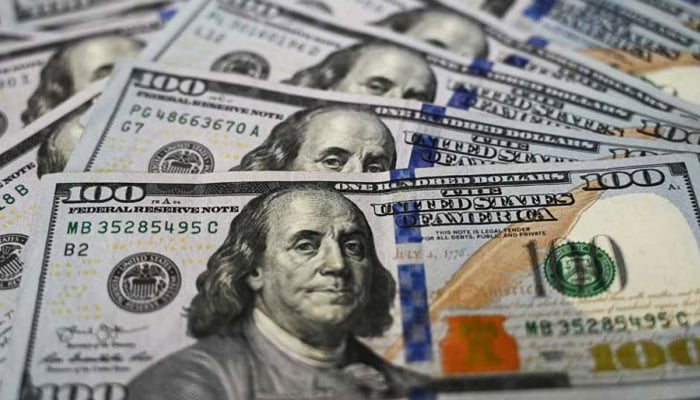SBP-held reserves increase after loan from Chinese bank
State Bank of Pakistan's forex reserves move up to $4.3 billion
The State Bank of Pakistan (SBP)-held forex reserves moved above $4 billion after the liquidity-challenged country received $500 million in loan from a Chinese bank.
In a statement, the central bank said that its foreign exchange reserves have increased by $487 million to $4,301 million as of the week ended March 3, which will provide an import cover of around a month.
The SBP received $500 million last week from the Industrial and Commercial Bank of China (ICBC) as part of the institution's $1.3 billion facility, just days after it had received $700 million from the China Development Bank.
Pakistan hasn't received funds from any friendly country except for China as the $350 billion economy struggles to revive the stalled International Monetary Fund (IMF) programme.
Cash-strapped Pakistan has been trying to secure the IMF bailout to avert a debt default, unlock more funding and stave off severe supply shortages. There are $7 billion of repayments in the coming months, including a Chinese loan of $2 billion due in March, according to Fitch Ratings.
The nation needs to repay about $3 billion dues in the upcoming payments while $4 billion is expected to be rolled over, SBP Governor Jameel Ahmad said in an analyst briefing after the announcement of the monetary policy rate — which has been jacked by to a 27-year high of 20%.
But as the IMF deal sees a dealy, the Pakistan rupee has plunged to historic lows and closed at 282.30 against the dollar in the interbank market — and if all goes well for Pakistan in the coming days, experts believe that the local currency can only recover to 265.
In his address to an event earlier on Thursday, Finance Minister Ishaq Dar said that the IMF was "satisfied" with Pakistan's actions, but the staff-level agreement could not be signed this week.
"We seem to be very close to signing the staff-level agreement hopefully in the next few days," Dar said in his address during a seminar titled "Reviving Economic Stability through the Strengthening of Public Financial Management" in the federal capital.
Due to a shortage of dollars, the government has also imposed restrictions on imports — resulting in the partial closure of not only textile but automobile manufacturers as well, prompting unemployment fears.
-
Global memory chip crunch puts spotlight on Apple; Will iPhone become more pricey?
-
Bitcoin plummets toward $60,000 as investors dump risky bets
-
Bitcoin crashes below $63K as regulatory pressure and market fears grow
-
Bitwise Crypto Industry innovators ETF: What investors should do in 2026?
-
Nintendo shares slide again as momentum fears grow
-
Gold, silver prices fallen sharply; What’s driving the drop?
-
Gold’s record climb: Experts question if its safety is ‘overstated’
-
Dubai unveils plans to construct street built with real gold












